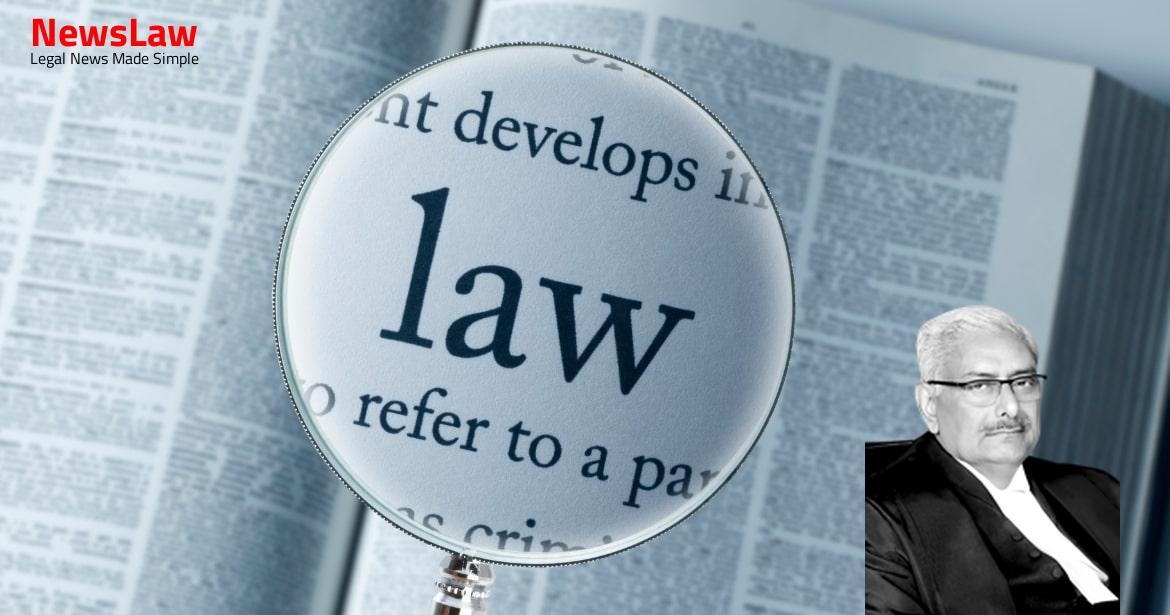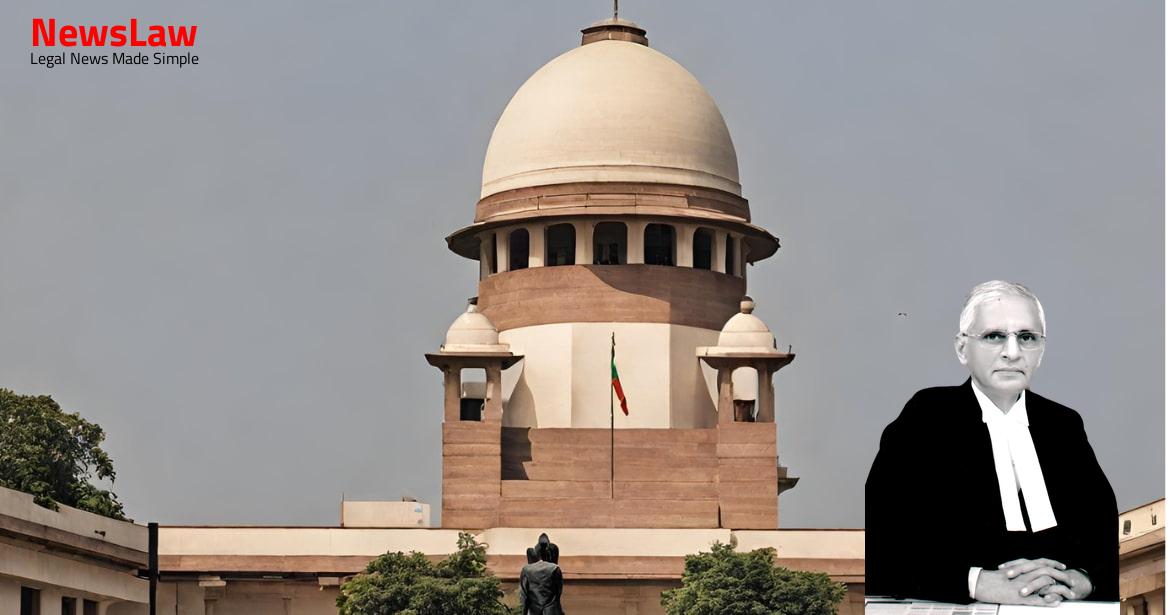In the case of Ramaswami v. Land Owner, the High Court ruled in favor of Ramaswami in a specific performance suit. The suit involved a dispute over a property agreement dating back to 1981. Ramaswami, the petitioner, sought specific performance of the agreement, which was initially dismissed by the trial court on grounds of limitation. However, the High Court overturned this decision, citing Article 113 of the Limitation Act. Stay tuned for more details on this legal battle!
Facts
- After the death of the original land owner, Nimmalapudi Ramaswami, his wife executed a sale deed in favor of another party.
- The respondent filed a suit for specific performance of an agreement dated 7.5.1981 against the appellants.
- The original defendant no.2 claimed to be a bonafide purchaser in possession with a valid sale deed.
- Temporary injunction was obtained by the respondent against potential interference from the original defendants.
- The suits for specific performance and permanent injunction were consolidated and heard together.
- Original defendant no.1 contended she sold the property to defendant no.2 with possession delivered.
- The court dismissed the suit on the grounds of limitation based on Article 54 of the Limitation Act.
- A writ petition was filed challenging a notification related to land acquisition.
- Legal notice was issued to the original defendants claiming specific performance of the agreement.
- The writ petition challenging the notification was allowed, setting it aside.
- Evidence was led by both the plaintiffs and defendants, including oral and documentary.
- The trial court believed in the execution of the agreement to sell and the possession by the plaintiff.
- Original defendant no.1 resisted the suit, alleging the agreement was collusive in anticipation of land acquisition.
- Time for the agreement was extended due to land acquisition proceedings initiated by the State Government.
- The trial Court granted permanent injunction in favor of the plaintiff, finding them in possession of the property.
- The High Court confirmed the trial Court’s decision on issues 1 to 5 and the decree of permanent injunction.
- The High Court allowed the appeal filed by the plaintiff, quashing the trial Court’s decision to dismiss the suit for specific performance.
- The suit for specific performance was decreed by the High Court based on Article 113 of the Limitation Act.
- The suit land was agreed to be sold by Nimmalapudi Ramaswami to the plaintiff through an agreement dated 7.5.1981 for Rs. 59,200.
- The trial Court’s denial of specific performance was solely on the ground of limitation.
- The original plaintiff filed Appeal Suit No. 3511/1992 against the trial Court’s decision which was decreed by the High Court.
- The original defendants have appealed against the High Court’s decision.
Also Read: Court’s Analysis on Interim Order for Appointing Contractual Employees
Arguments
- The petitioner argues that the High Court erred in not properly appreciating the fact that the trial Court rightly dismissed the suit based on limitation under Article 54 of the Limitation Act.
- The petitioner asserts that they are a purchaser without notice of the earlier agreement and have paid the full sale consideration.
- They mention that the suit was filed within three years after the land acquisition proceedings were challenged and quashed by the High Court.
- It is highlighted that the petitioner has always been ready and willing to perform their part of the contract and has consistently challenged the acquisition proceedings, showing their good faith.
- The petitioner contests the applicability of Article 113 of the Limitation Act and argues that the suit being barred by limitation under Article 54 was correctly held by the trial Court.
- They emphasize that as per the agreement to sell, it was the landowner’s responsibility to settle all disputes related to the property.
- The learned Advocate representing the appellants has suggested that if the High Court’s judgment is overturned and the land in question is returned to the appellants, they are prepared to offer a substantial sum to the plaintiff.
Also Read: Analysis of Legal Jurisdiction and Fraud Allegations in a Banking Case
Analysis
- The High Court confirmed the applicability of Article 113 of the Limitation Act in the case of Original Plaintiff’s suit for specific performance of the agreement dated 7.5.1981.
- The suit was filed within three years of the right to sue accruing, as per the plaintiff’s case.
- The High Court rightly applied Article 113 of the Limitation Act instead of Article 54, as done by the trial court.
- The suit was dismissed by the trial court on the grounds of limitation, despite favorable findings on the execution of the agreement and possession of the property.
- The plaintiff and the original vendor both made representations regarding the sale and possession of the land in question before it was subjected to acquisition.
- Agreement to sell executed in 1981 for Rs. 59,200 with Rs. 26,500 earnest money.
- Plaintiff had possession for 40 years.
- Application of Article 113 of Limitation Act.
- Plaintiff consistently protected possession and property.
- Plaintiff always ready and willing to perform under the agreement to sell/contract.
- High Court rightfully decreed the suit for specific performance.
Also Read: The Supremacy of Pharmacy Act in Regulating Pharmacy Education
Decision
- The plaintiff is directed to pay Rs.15,00,000/- to the original defendants for the sale deed.
- The plaintiff has agreed to pay additional amount to the defendants to end the litigation.
- Total sum of Rs.15,00,000/- inclusive of the balance amount must be paid within eight weeks.
- The appeal is dismissed with no costs imposed.
Case Title: VUNDAVALLI RATNA MANIKYAM, W/O V. RAMA KRISHNA Vs. V.P.P.R.N. PRASADA RAO (2020 INSC 141)
Case Number: C.A. No.-001204-001204 / 2020



